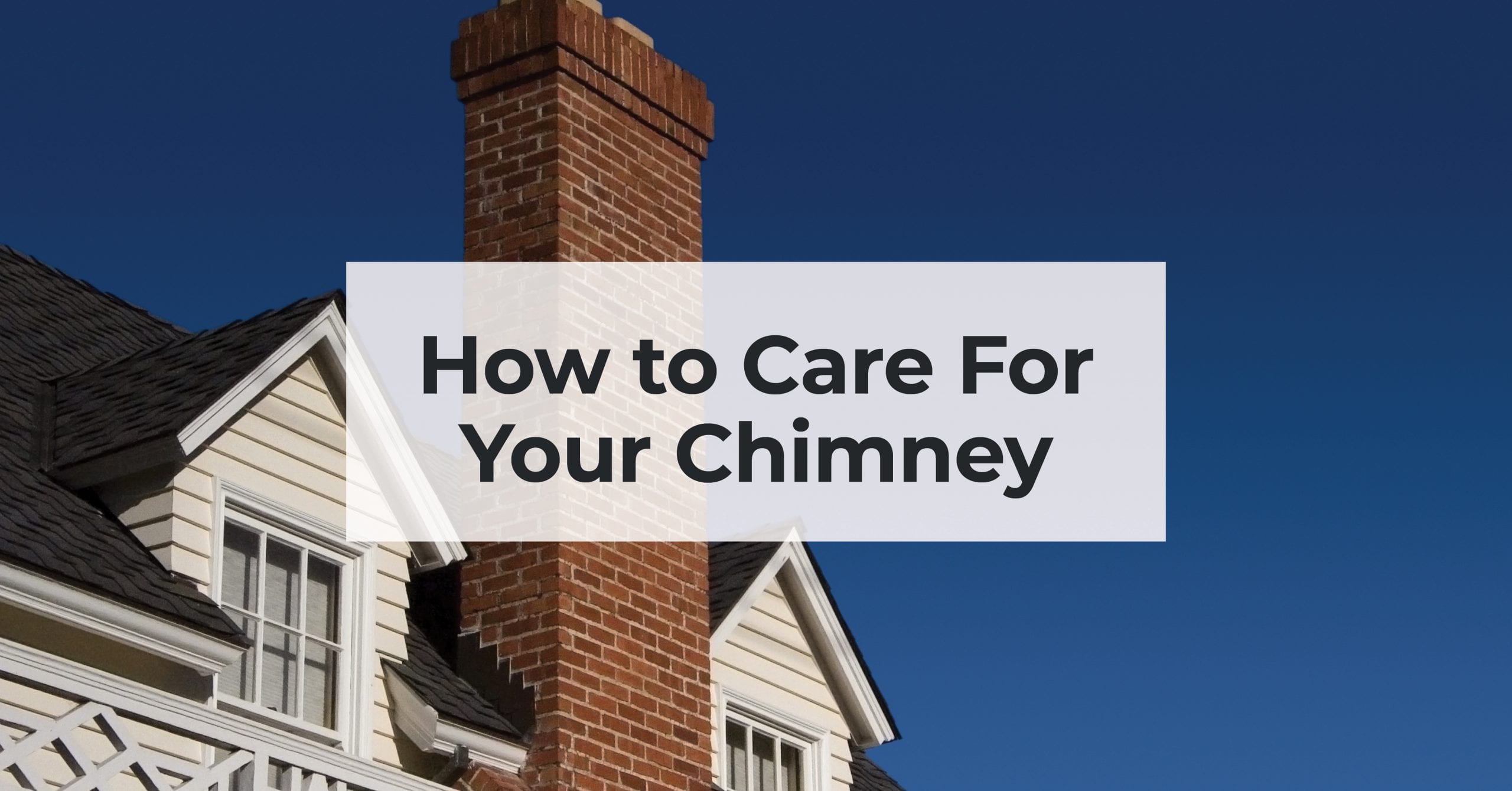
By Alena Kairys
Nov 12, 2020There’s nothing like curling up beside a toasty fireplace on a chilly day! While it’s great to be able to enjoy the crackle of wood and smoky scent, owning a home with a chimney requires extra care. Read on to learn how to care for your chimney.
Cleaning
When it comes to caring for your chimney, cleaning is crucial—and not just for the sake of cleanliness. Each time you burn wood in your fireplace, your chimney will gradually accumulate creosote. Creosote is the tar-like residue that is left from burning wood or fossil fuels. The natural oils in the fuel mix with smoke and stick to the insides of the chimney as the smoke cools. As creosote collects, it can cause breathing issues and increase your risk of an uncontrolled fire. In addition to creosote, your chimney may have leaves, sticks, or even animal nests inside. Since chimneys are open structures, it’s not impossible for things to fall in from outside. A routine cleaning will ensure there is nothing clogging the flue that could trap smoke in your home.
At least once a year, have a professional chimney sweep clean your chimney to remove ash, creosote, and other debris. It’s advisable to have a cleaning performed before you intend to use it. Depending on how often you use your fireplace, you may need to have more frequent cleanings. The Chimney Safety Institute of America (CSIA) advises scheduling a cleaning when there is 1/8th of an inch layer of buildup in your chimney liner. In between cleanings, you should sweep away excess ash from your fireplace.
Proper Use
Using your chimney properly will help keep it in good shape and your home safe. There are simple things you can do to help your chimney function the way it’s supposed to. Whether you have a wood burning or a gas fireplace, always open the flue damper before starting a fire. The damper is an iron door in the chimney that is opened to let smoke escape and is closed when not in use. It may be easy to forget to open and close the damper in between uses, but being diligent about it will go a long way in keeping everything running smoothly. For woodburning fireplaces, always use dry hardwood for fuel. Hardwoods like oak and maple have less resins in them, so they will produce less creosote. Using dry wood will also burn more efficiently. Be aware of cracks or signs of movement in your masonry. These can be indications the structure is unstable—call a professional to look it over.
Like cleaning, a chimney inspection is integral to your home’s safety and for maximum enjoyment of your fireplace. You should have an inspection done at least once a year, preferably a few months before you plan to use your fireplace. A certified chimney inspector will examine the masonry, flue, damper, liner, and flashing to ensure everything is structurally sound. If you have a gas fireplace, you don’t have to worry about creosote, but you still should have it cleaned and inspected at least once a year. Even if you don’t use your fireplace, an annual inspection and cleaning is important for safety reasons.
Your chimney and fireplace aren’t just there to look pretty, they are operational parts of the home. Giving these structures the attention they need will help them last for generations to come and give you more peace of mind when enjoying them.
If you have any questions about the home buying process, contact one of our licensed Mortgage Loan Originators. If you are ready to begin the home buying process, click here to get started!
These blogs are for informational purposes only. Make sure you understand the features associated with the loan program you choose, and that it meets your unique financial needs. Subject to Debt-to-Income and Underwriting requirements. This is not a credit decision or a commitment to lend. Eligibility is subject to completion of an application and verification of home ownership, occupancy, title, income, employment, credit, home value, collateral, and underwriting requirements. Not all programs are available in all areas. Offers may vary and are subject to change at any time without notice. Should you have any questions about the information provided, please contact us.